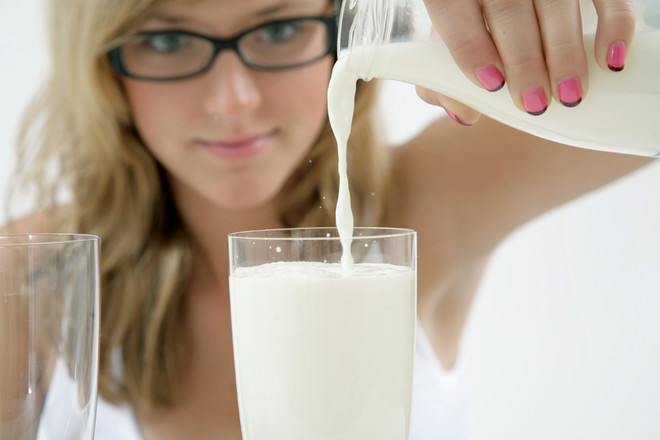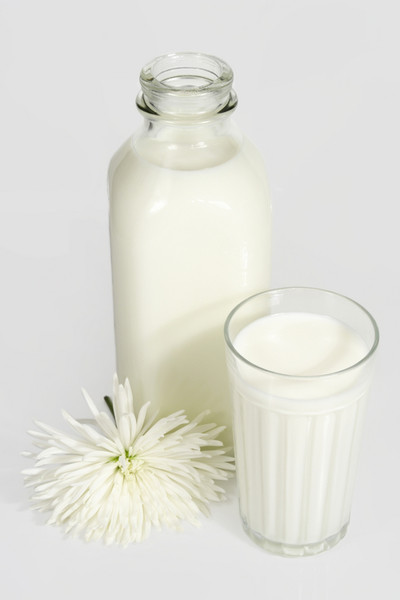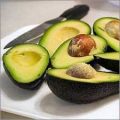 Harm and benefit of milkWho to believe?On one side, there are groups (PCRM and PETA) that claim that milk is evil. On the other end of the spectrum, there is the Dairy Association, which believes that milk is necessary to maintain oneself in the best possible condition. And in addition to the debate about its health benefits, there are also political, ethical, and environmental factors that must be taken into account. As with most debates, the truth lies somewhere in the middle. Let's try to find that middle ground! Milk and Health A study was conducted - 400,000 adults around the world were observed for 28 years. Those who drank the most milk were less susceptible to heart disease and heart attacks than those who drank less milk or did not drink it at all (and the study was not sponsored by the dairy industry). But! Hormonal cancers are on the rise worldwide. And cow's milk - source of estrogens and insulin-like growth factor (IGF-1), which can cause unregulated cell division. On the other hand, the relationship between breast or prostate cancer and milk tends to zero if we exclude the influence of excessive consumption of other animal products - and in particular red meat.
Harm and benefit of milkWho to believe?On one side, there are groups (PCRM and PETA) that claim that milk is evil. On the other end of the spectrum, there is the Dairy Association, which believes that milk is necessary to maintain oneself in the best possible condition. And in addition to the debate about its health benefits, there are also political, ethical, and environmental factors that must be taken into account. As with most debates, the truth lies somewhere in the middle. Let's try to find that middle ground! Milk and Health A study was conducted - 400,000 adults around the world were observed for 28 years. Those who drank the most milk were less susceptible to heart disease and heart attacks than those who drank less milk or did not drink it at all (and the study was not sponsored by the dairy industry). But! Hormonal cancers are on the rise worldwide. And cow's milk - source of estrogens and insulin-like growth factor (IGF-1), which can cause unregulated cell division. On the other hand, the relationship between breast or prostate cancer and milk tends to zero if we exclude the influence of excessive consumption of other animal products - and in particular red meat. More facts:
More facts:
- Drinking milk increases the risk of uterine cancer, but at the same time reduces the risk of anal canal cancer, which is much more common.
- There is currently no evidence of a relationship between milk consumption and type 1 diabetes.
- Approximately 70% of the population has in one way or anotherdegree of lactose intolerance. For those who drink milk, this can be a problem, but there are always options with a low lactose content. In addition, lactose is much less in cheese and yogurt, so usually there are no problems with them.
Milk and bonesthere are cases of osteoporosis than in the West, although they consume less dairy products. The Nurses Health Study (a women's health research society) found that women who drink more than two glasses of milk a day are more prone to bone fractures. But! Asian people have a very different overall diet and lifestyle, and the results of the Nurses Health Study may well be simply a reflection of the number of women who know about the risk of fractures and try to compensate for it (just too weak and too late). Milk and Weight LossOnce PromisingThe study that showed that three servings of dairy products a day will reduce weight was not confirmed. Another independent study showed virtually no effect of daily milk consumption in terms of fat-fighting. In general, it is not surprising, considering who benefited from the result in the first place "milk reduces weight". Pasteurized or natural? Supporters of pasteurization insist that it is a necessary process to destroy harmful bacteria, which has little effect on the nutritional value and flavor. Opponents of pasteurization are convinced that the same process that kills bacteria also destroys vitamins, minerals and enzymes that are vital to our health. Moreover, they point out that bacterial infections from unprocessed milk are very rare, so they hardly deserve the status of a global problem. How to understand all this? Drawing conclusions from all of the above is a highly subjective matter, but we can summarize the following:
Milk and Weight LossOnce PromisingThe study that showed that three servings of dairy products a day will reduce weight was not confirmed. Another independent study showed virtually no effect of daily milk consumption in terms of fat-fighting. In general, it is not surprising, considering who benefited from the result in the first place "milk reduces weight". Pasteurized or natural? Supporters of pasteurization insist that it is a necessary process to destroy harmful bacteria, which has little effect on the nutritional value and flavor. Opponents of pasteurization are convinced that the same process that kills bacteria also destroys vitamins, minerals and enzymes that are vital to our health. Moreover, they point out that bacterial infections from unprocessed milk are very rare, so they hardly deserve the status of a global problem. How to understand all this? Drawing conclusions from all of the above is a highly subjective matter, but we can summarize the following:
- It has not been proven by anyone that milk is really so useful, as far as it is promoted by broadcast advertising campaigns. A healthy diet probably does not depend on the presence of milk in it.
- Milk cannot and is the root of all evil, asThis is approved by the Society for the Ethical Treatment of Animals. With other things being equal, the consumption of dairy products 1-3 times a day is probably enough to satisfy the need for vitamins / minerals, but not enough to start worrying about the harmful effects.
- Milk and other dairy products are probably the best.a way to get an adequate amount of calcium, although it is not the only one. We also recommend supplementing milk with vitamin D, which allows bones to absorb this calcium.
- Do not expect a glass of milk, or a piece of cheese to help you lose weight.
- I do not think that the pasteurization of milk bringsas many problems as anti-pasteurizers claim, but the opposite is also true. The risk of bacterial infection from the consumption of raw milk seems to be low enough, but the potential consequences are severe enough to be ignored. If you intend to consume unprocessed milk, it is important to know in what conditions the animals are kept, how hygienic they are and how the products are tested with your supplier. If you drink live or dead milk, it is unlikely to have a significant impact on your health if you consume it in moderation.
Author's Note: The latest study in Nutrition Reviews examined 49 cases that were related to dairy products and weight loss: “Of the 49 cases in 41 cases, no effect on dairy products or calcium on weight was found, two showed weight gain while respecting regular consumption of dairy products, one showed a decrease in the rate of weight and only five showed weight loss. ”









